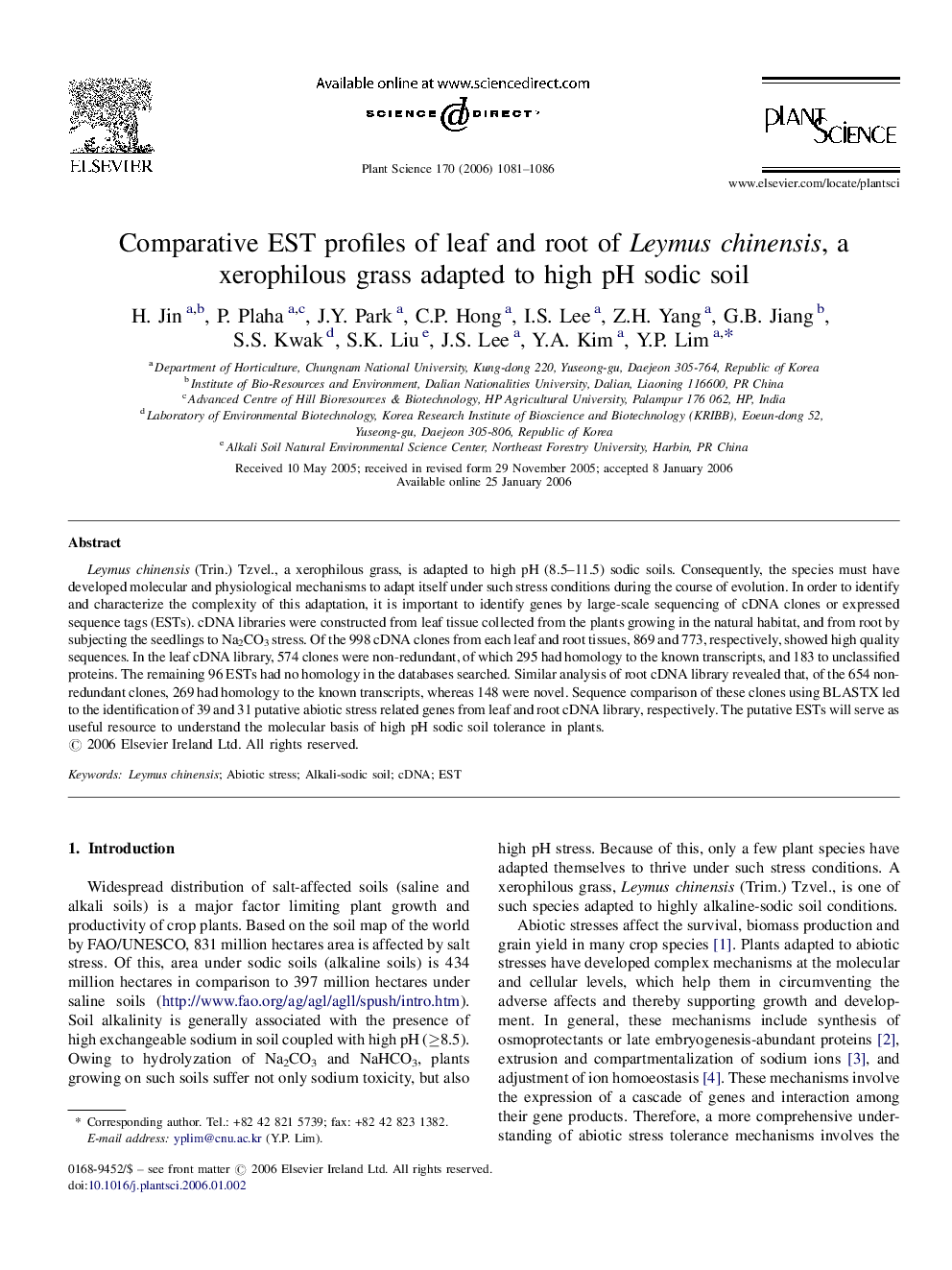| Article ID | Journal | Published Year | Pages | File Type |
|---|---|---|---|---|
| 2018520 | Plant Science | 2006 | 6 Pages |
Leymus chinensis (Trin.) Tzvel., a xerophilous grass, is adapted to high pH (8.5–11.5) sodic soils. Consequently, the species must have developed molecular and physiological mechanisms to adapt itself under such stress conditions during the course of evolution. In order to identify and characterize the complexity of this adaptation, it is important to identify genes by large-scale sequencing of cDNA clones or expressed sequence tags (ESTs). cDNA libraries were constructed from leaf tissue collected from the plants growing in the natural habitat, and from root by subjecting the seedlings to Na2CO3 stress. Of the 998 cDNA clones from each leaf and root tissues, 869 and 773, respectively, showed high quality sequences. In the leaf cDNA library, 574 clones were non-redundant, of which 295 had homology to the known transcripts, and 183 to unclassified proteins. The remaining 96 ESTs had no homology in the databases searched. Similar analysis of root cDNA library revealed that, of the 654 non-redundant clones, 269 had homology to the known transcripts, whereas 148 were novel. Sequence comparison of these clones using BLASTX led to the identification of 39 and 31 putative abiotic stress related genes from leaf and root cDNA library, respectively. The putative ESTs will serve as useful resource to understand the molecular basis of high pH sodic soil tolerance in plants.
